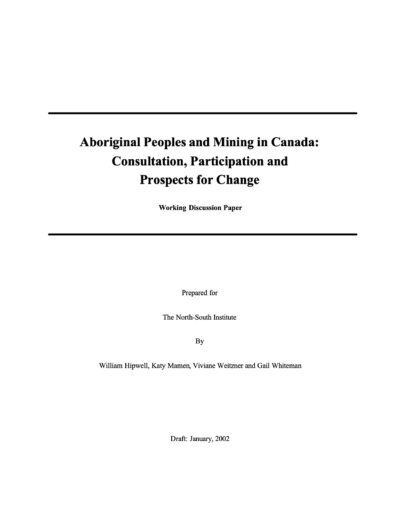
- Report year:2002
- Report author: William Hipwell, Katy Mamen, Viviane Weitzner and Gail Whiteman
- Organisation: The North-South Institute
This paper examines some of the factors that led to this ‘flip’ in corporate and government policy, focussing in particular on the topic of consultation. In recent years, consultation has become a hot topic in Canadian Aboriginal, policy, legal, industry and NGO circles as one means of ensuring more community input into decision-making about mining. Multistakeholder processes such as the Whitehorse Mining Initiative (WMI) and the more recent National Round Table on the Environment and the Economy (NRTEE) Task Force on Aboriginal Communities and Non-renewable Resource Development have underscored the need for better consultation processes as a means to defuse potential conflict and ensure more equitable Aboriginal participation in decision-making. The Supreme Court of Canada has also ruled that Aboriginal people whose Aboriginal rights might be infringed should – at a minimum – be consulted. Environmental Impact Assessment procedures now include public participation mechanisms. Mining policies and regulations have undergone an apparent shift toward principles of sustainable development and more inclusive processes. And a handful of exploration and mining companies have developed corporate codes of conduct and policies with regards to activities near Aboriginal territories, some with guidelines for consultation.
